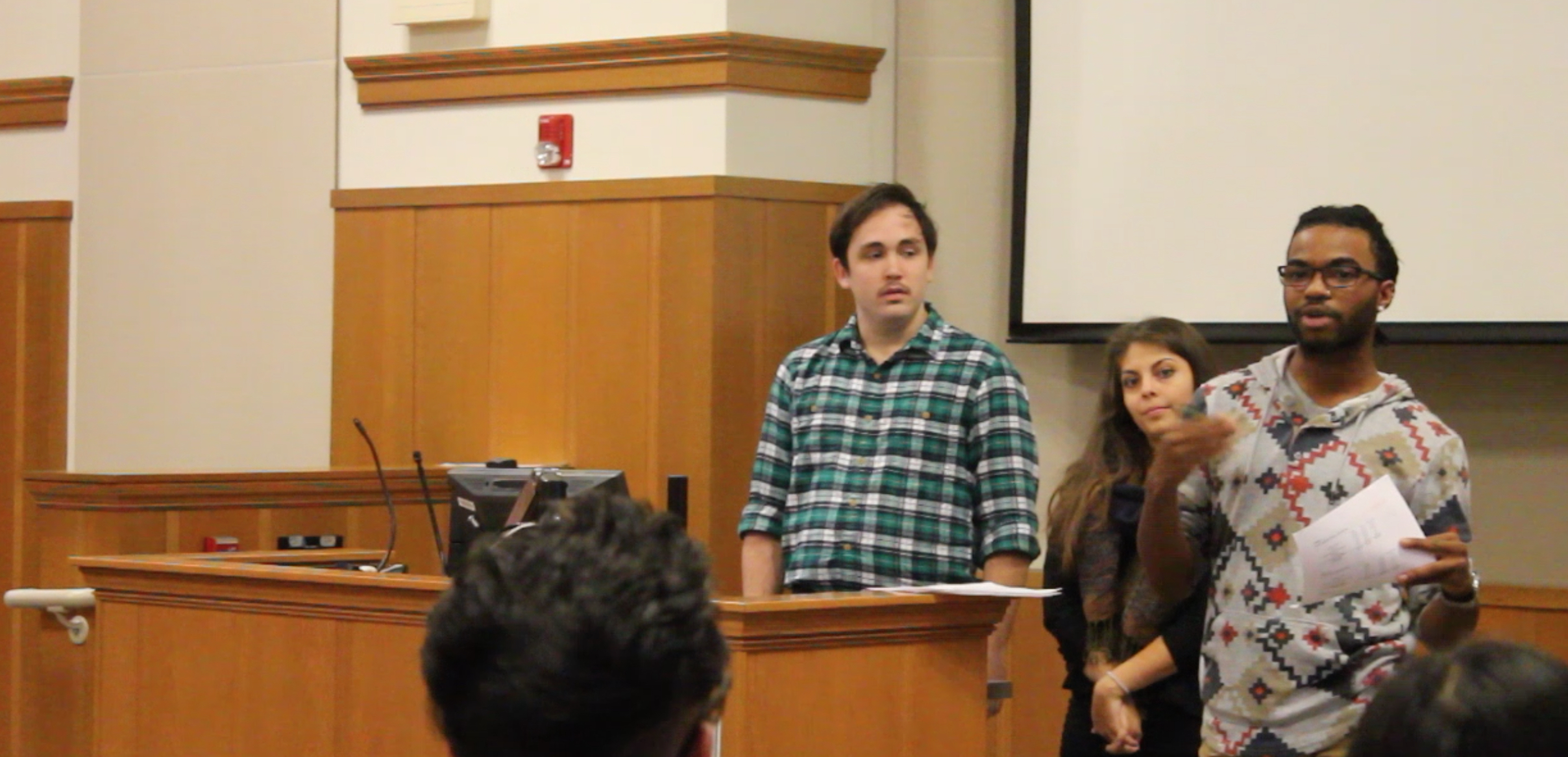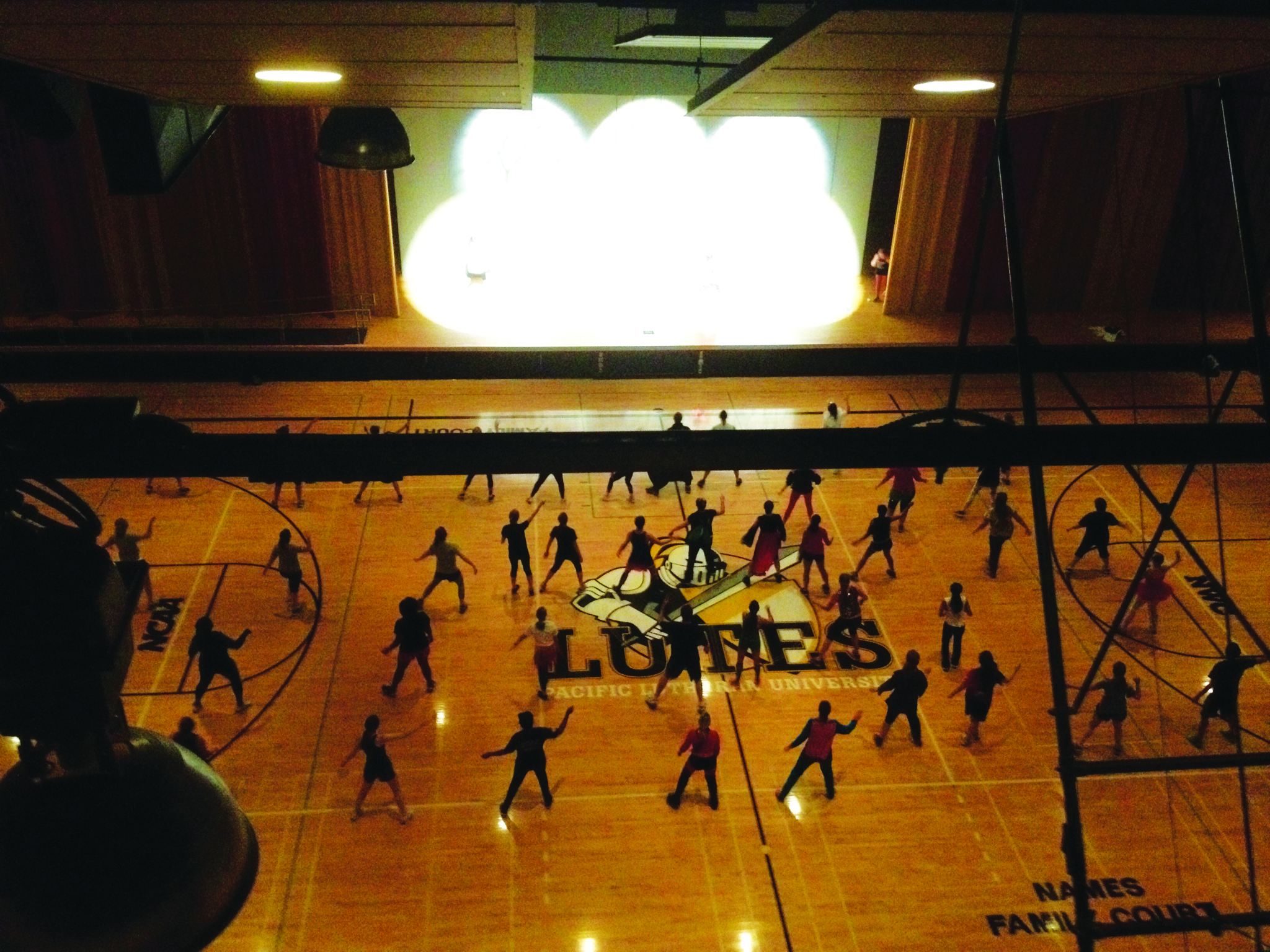Rhiannon Berg
News Writer
bergre@plu.edu
Colleges across the country have been featured in the news with images of upset students and apologetic administrators because of the privilege and oppression that is intertwined with race. Pacific Lutheran University students held conversations Dec. 7 about racial inequality at after presenting research on the perceptions and experiences of more than a hundred PLU students.
While PLU prides itself on being ethnically diverse and welcoming to all people, it is not immune from racial inequality. Students from Sociology 332: Sociology of Race and Ethnicity surveyed PLU students about topics such as affirmative action, the success of minority students, drug use and awareness of racial diversity on campus.
“I’d like to see more dialogue around race and its importance to student’s experiences,” said the instructor of the course, Dr. Teresa Ciabattari. “We have a lot of education to do at PLU so a broader group of the student body, as well as the faculty and staff, are aware of how salient race and racial identity is for students of color and how much it does affect their experiences.”
At the event, students presented research that showed minority students experience isolation within their major at rates higher than non-minority students. Dr. Ciabattari said she analyzed data reported from last year’s first-year students and found students of color also report a lower sense of belonging than their non-minority peers.
“Having more conversations like these is important,” said Dr. Ciabattari. “We need to do more to change the culture of PLU so that all students feel like they belong.”
The PLU Factbook reported PLU’s student body is made up of 27 percent students of color and 14 percent of faculty are non-white.
The Dean of Students, Dr. Eva Frey, said PLU strives to have the greatest pool of applicants to ensure that they’re diverse on a variety of levels, including gender and race. She was the first ASPLU director of diversity in 1993 while pursuing her undergraduate degree at PLU.
“PLU is more conscientious about racial diversity today than they have ever been,” said Dr. Frey. “We’re doing all that we can and I appreciate that.”
Multiple faculty members declined to comment on the topic of racial diversity amongst PLU’s faculty for this article.
The current ASPLU director of diversity, senior Maya Perez, presented her findings on how confronting whiteness effects and perpetuates racial inequality at PLU during the Dec. 7 event.
“I really have faith that PLU will continue to complexify it’s hiring practices in seeking out a more racially diverse staff and faculty,” said Perez. “I think that it’s something that as students we’re holding them accountable for and that they’re learning to hold themselves accountable for as well.”
Dr. Ciabattari said she hopes events like this one will promote more conversations about race and ethnicity at PLU.
“Be open to the conversation and hearing stories and experiences that might challenge what you have know or experienced about the world and PLU,” she said. “See it as an opportunity for intellectual growth as well as personal growth.”



























